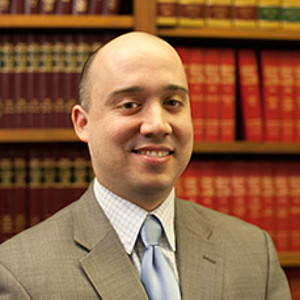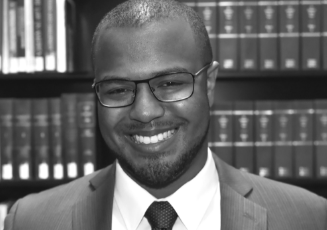As for the incumbent, President Donald Trump’s first term has been bookended by wildly false claims of voter fraud. First, there was the assertion that millions voted illegally in 2016, a precursor to more recent allegations of widespread abuse associated with mail-in voting. This all despite mounting evidence that voter fraud is a virtually non-existent problem.
For their part, Republicans in states across the country have aggressively attacked this imagined enemy with the full force of its legislative and procedural powers, enacting voter ID laws, closing polling sites, reducing early voting and aggressively purging voter rolls.
In this heightened political environment, concerns over voter suppression are mounting, especially as the president attacks mail-in voting amid a deadly pandemic that has claimed more than 220,000 American lives.
Voting rights advocates say these attacks are directly connected to one of the most consequential U.S. Supreme Court rulings in recent memory.
In 2013, the U.S. Supreme Court issued a controversial decision in the Shelby County v. Holder case, a 5-4 decision that largely gutted the landmark Voting Rights Act. The court’s conservative majority ruled that the “preclearance system” outlined in section 5 of the law was unconstitutional. At the heart of the argument, the court said that rules meant to prevent nine states and dozens of counties nationwide from enacting anti-voter measures were outdated and unnecessary, citing strides the affected jurisdictions had made in the decades since.
Subscribe to News Beat on your favorite pod app and sign up for our newsletter.
In her dissent, the late Supreme Court Justice Ruth Bader Ginsburg said her colleague’s reasoning was akin to someone discarding their umbrella during a rainstorm.
The fallout, voting rights advocates say, was predictable.
In the years since the Voting Rights Act was castrated, three dozen states have enacted voter ID laws ostensibly in the name of election integrity. Meanwhile, several states—including those once covered under section 5—have closed at least 1,625 polling sites across the nation.
In a report documenting these closures, The Leadership Conference Education Fund, the research arm of nonprofit The Leadership Conference on Civil and Human Rights, said: “Though not inherently discriminatory, these polling place closures occurred in states and localities with past histories of racial discrimination in voting. And some took place amid a larger constellation of efforts to prevent voters of color from electing the candidates of their choice, such as enactment of stricter voter identification laws, restrictions on voter registration, and voter purges.”
Voter Suppression
Deuel Ross, senior counsel at the NAACP Legal Defense and Education Fund, says the Voting Rights Act is considered the “crown jewel of the Civil Rights Movement”—a bloody struggle characterized by myriad sacrifices.
Outlined in section 5 of the Voting Rights Act was a provision called “preclearance.” It made it mandatory for “covered” states to receive approval to change election procedures, regardless of how seemingly minor, including adjustments to polling locations.
“Either the [federal] court [in Washington, D.C.] or the Department of Justice had decided that the law did not have a discriminatory effect or discriminatory purpose,” Ross tells News Beat podcast. “That provision was in effect from 1965 until 2013. The states and places that were covered by it were primarily in the South, the old Confederacy, Texas through Virginia, but also included parts of New York City, parts of California, parts of Michigan, other states.”
The court’s 5-4 ruling changed everything.
By effectively killing the law’s enforcement mechanism, “States like Alabama, Louisiana, Texas, Virginia have passed a series of just draconian voter suppression laws that infringe primarily on the rights of African Americans, but again, other people of color as well,” says Ross.
In a September 2019 report titled “Democracy Diverted,” The Leadership Conference Education Fund said since the Shelby County v. Holder decision, “a growing number of states and localities across the country have attempted to suppress voter participation among Black and Brown communities in various ways.”
Subscribe to News Beat on your favorite pod app and sign up for our newsletter.
It adds: “States have shortened voting hours and days, enacted new barriers to voter registration, purged millions of eligible voters from the rolls, implemented strict voter identification laws, reshaped voting districts, and closed polling places. Many of these changes have been found to discriminate against Black and Brown voters. Courts have, in fact, found intentional discrimination in at least 10 voting rights decisions since Shelby. In 2016, the U.S. Court of Appeals for the Fourth Circuit described North Carolina’s voter ID law as ‘the most restrictive voting law North Carolina has seen since the era of Jim Crow’ and said its provisions ‘target African Americans with almost surgical precision.’”
Texas similarly moved swiftly to enact its voter ID law. Passed in 2011, it took effect shortly after the Shelby decision. In the seven years since, the law—considered one of the strictest in the nation—suffered multiple setbacks until a federal court upheld a revised version.
RELATED: Listen to our podcast episode "The Real Voter Fraud" to learn how Jim Crow-era laws disenfranchise millions of voters. Check it out on your favorite podcast app.
Thirty-six states have a version of voter ID on the books, including seven whose laws are considered strict. Only 17 states currently have no such restrictions.
With the stakes high in this election, it’s also notable that several swing states require photo IDs, including Wisconsin, Michigan and Florida.
Alabama, another state free of its preclearance obligations, passed its own version of voter ID in 2011, but did not submit it for preclearance, says Ross. However, after the Shelby decision, the state said it planned to enforce its photo ID requirements.
The NAACP Legal Defense Fund sued the state in 2015, arguing that the law discriminated against minority voters. In July of this year, a federal appeals court ruled in Alabama’s favor, with the one dissenting judge noting that in-person voter fraud is “virtually non-existent.”
States deadset on enacting voter ID laws must pass legislation to do so. However, seemingly mundane election modifications, such as closing or moving polling sites or purging voter rolls, don’t require legislative action, according to Sean Morales-Doyle, deputy director in the Democracy Program at the Brennan Center for Justice, a nonprofit.
“We saw these things happening more frequently in places that had formerly been covered by the preclearance provisions,” Doyle tells News Beat.
Since the Shelby decision, more than 1,600 polling locations have been closed throughout the United States.
In the aforementioned report titled “Democracy Diverted,” the authors lamented that “poll closures have received little attention, even though they are a common and particularly pernicious way to disenfranchise voters of color.”
“Decisions to shutter or reduce voting locations are often made quietly and at the last minute,” it added, “making pre-election intervention or litigation virtually impossible.”
Morales-Doyle says the concern is that polling places will be closed “in a way that disproportionately impacts certain communities that have traditionally been marginalized communities,” including Black and Brown neighborhoods.
"When we talk about burdens that stop people from casting a ballot, people who are eligible to vote, they come in a lot of different forms," Morales-Doyle adds. "But when you're showing up to vote in the same place that you voted every year for the last 20 years, and it's closed and it's not there anymore, that is the kind of burden that if it happens on Election Day could stop someone from voting."
2020 Presidential Election
With just days before the presidential election, voting rights groups, lawyers and political analysts are preparing for a flood of election-related lawsuits, perhaps setting the stage for a lengthy legal battle over the legitimate victor.
But we don’t need to look toward the future to gauge how busy the courts will be after Election Day. That’s because there have already been more than 350 election cases in state and federal courts, according to The New York Times. As the paper notes, many of the cases are related to mail-in ballots and vote counting, with cases still being decided as we draw ever closer to Nov. 3.
On Oct. 20, the U.S. Supreme Court, in a 4-4 ruling, said Pennsylvania can continue to count absentee ballots up to three days after Election Day.
The ruling is a victory for Democrats, who just weeks earlier were on the losing end of a state Supreme Court verdict that mandated voters return mailed ballots inside a secrecy envelope—also known as “naked” envelopes—in order for votes to be counted, which wasn’t the case during the state’s primaries.
Lisa Deeley, chair of Philadelphia’s City Commissioners, warned of the potential fallout from this decision, and said that 6.4 percent of absentee ballots in the 2019 general election were "naked." If a similar percentage of received ballots are naked this election, then possibly thousands of ballots won’t be counted, she said in a letter to lawmakers urging them to eliminate the secrecy requirement. Deeley estimated that upwards of 40,000 ballots could be “thrown out in Philadelphia alone.”
“While everyone is talking about the significance of extending the mail ballot deadline,” she said, “it is the naked ballot ruling that is going to cause electoral chaos.”
Subscribe to News Beat on your favorite pod app and sign up for our newsletter.
Similar battles are happening across the country. Texas Republicans won a legal challenge to limit secure ballot drop-off boxes to one per county, despite the sprawling nature of some of The Lone Star State's largest counties. On the other hand, a federal judge in Ohio barred the state from installing only a single box within each county.
In another ruling favorable to Republicans, a federal appeals court said ballots in Arizona missing signatures must be corrected before Election Day. In practice, this means voters that neglected to sign their ballot will have an opportunity to fix the error by Nov. 3, as opposed to "mismatched" signature corrections, which can be made up until five days after the election.
Morales-Doyle says that education is key in the lead up to the election.
"There's gonna be a lot more people casting their votes by mail, people need to understand how that system works," he says, adding, "People need to know that they need to sign the ballot, they need to put it in the envelope, how they can return it, where they can return it to [and] the deadlines for returning it. These things vary state by state."
Voters, he adds, need to be reminded that ballots will be counted past Election Day in certain states, and people need to be mindful that results may not be finalized on the night of the election, or the day after.
"If there are ballots arriving after Election Day," Morales-Doyle says, "that doesn't mean that there's something nefarious going on. It is actually a sign that this is a jurisdiction that has a good pro-voter policy [and] is trying to make sure every vote is counted."
While some observers are heartened that tens of millions of Americans have already voted, others are aghast at long lines at some polling locations, including one where people waited 11 hours to cast a ballot.
As officials play close attention to this election, voting rights advocates are reminded that you can't take anything for granted, most especially the right to vote.
"Frankly, America didn't have much of a democracy before the Voting Rights Act of 1965," says Ross. "And the idea of getting rid of it, or further weakening its protections, I think, only undermines further the very nature of American democracy."








